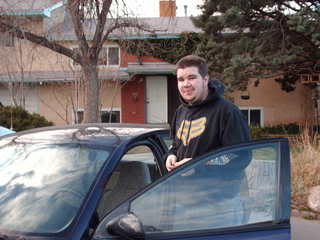
"Learning flows when needs are met, connections are strong, and kids can absolutely trust their parents, and know their parents are there for them."
photo by Cátia Maciel

If I had magic to make it all easier, I would share it with all of you.


Hopefully they will then carry that forward to how they treat their children, regardless of what the current trend is, or fears they have, or the current scaremongering circulating. Even if they don't have children of their own, my hope is that they treat and speak to all children that they come in contact with throughout their lives with the same respect and kindness that they afford their partners and friends, and that they treat them like the people they are.

The Evidence of Years—Deb Lewis
That boy later learned Italian, and visited Italy.
He let me use some of his photos.
photo by Dylan Lewis

I've used this quote before, but used better titles:
2017: Travel interesting paths
2018: "Why do we do this?" (with the same photo, even)
| When parents are not honest and fair-minded, the children can come to disregard their information and advice. For unschooling, I think that's the greatest danger. |